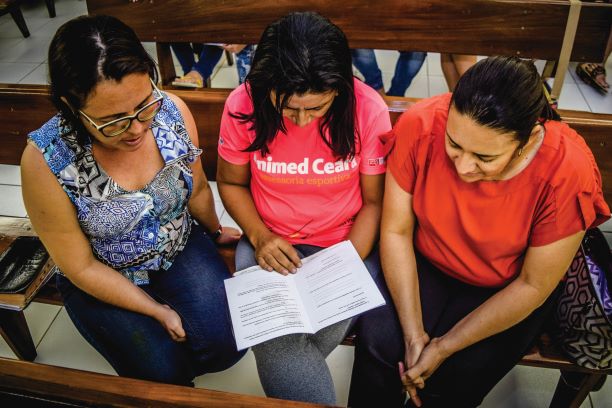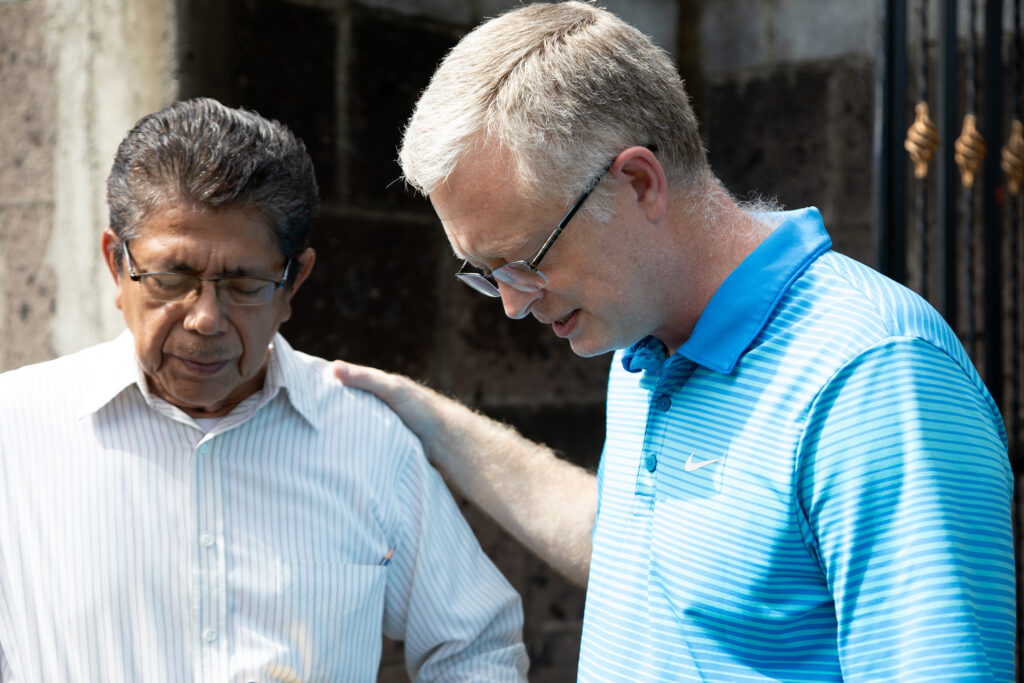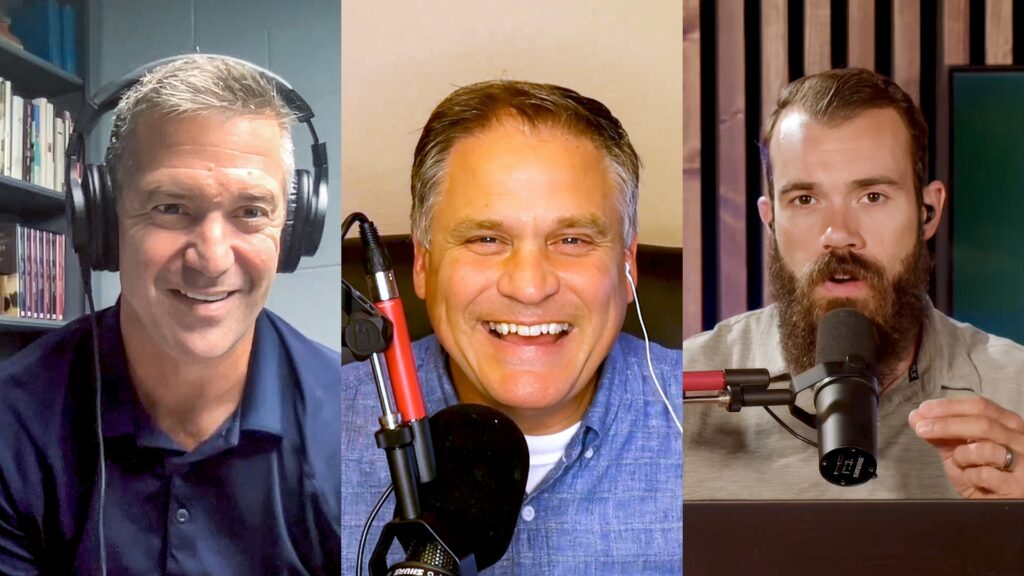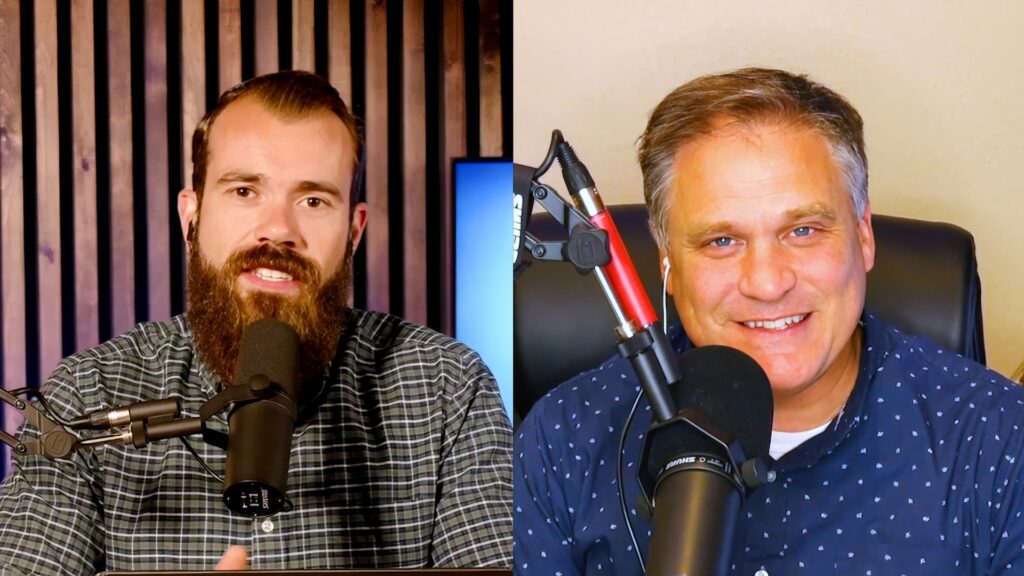In Jenuan’s region of northeast Brazil, extra money is hard to come by. According to the Center for the Study of Global Christianity, 60 percent of all Christians live in the developing world, but only hold 17 percent of all Christian financial resources. And at many of ABWE’s Brazilian church plants and partner churches, attendance often tops out at 50 people on a Sunday. With limited money and smaller congregations, the concept of raising enough money to support missionaries — or even just one missionary — seemed beyond their reach.
“We prayed for missionaries from other places and believed in the work they were doing, but we felt like it was impossible for us,” said Pastor Jenuan. “We had a pessimistic view of Brazilian missions because, as a whole, we are a poor people with small churches.”
Still, ABWE continued to equip local believers for missions, and in 2004, ABWE’s South America Administrator Dave Southwell felt it was time for Brazilians to step out in faith. With the hope of lighting hearts on fire for the world, Dave organized a meeting for Brazilian church leaders interested in global missions. Pastor Jenuan listened intently as Dave shared the idea of Brazilian churches beginning to work together in cross-cultural missions. Dave explained that Brazil’s reputation as a nation of apolitical soccer lovers gave them a unique opportunity to reach regions of the world that are hard to reach or inaccessible to North American missionaries. Additionally, ABWE promised to help launch and support any local missions movement they developed.
Jenuan saw that a Brazilian-run mission was possible and was inspired, but he still wasn’t sure that he was capable of changing his people’s mindset and starting a missions movement.
Then, two years later, Jenuan’s church held a special week of prayer for missions, and they invited two Cape Verdean girls, who were attending a local school, to share about their country’s needs. God used their words to reignite Jenuan’s passion for missions.
“After so long, I was getting discouraged that our meeting had no impact, and then in 2006, Jenuan called me out of the blue and told me about his plan to move ahead with cross cultural missions on his own,” Dave Southwell said.
Jenuan and his church decided to begin with Portuguese-speaking Cape Verde because there were no language barriers, and it was relatively inexpensive to live there. Plus, travel to Cape Verde was cheap and only a three-and-a-half hour flight.
Their first missionary arrived in Cape Verde seven years ago, and today, Maranatha Multicultural Ministries (MMM) is an established Brazilian-run, Brazilian-supported missions agency that has more than 150 churches supporting 32 missionaries in 12 countries — several that Americans can’t easily access.
MMM’s fiorst missionary in front of a church he helped plant in Cape Verde
“We are in a very poor region of the country with relatively small churches, but more than 80 percent of the support comes from our region and more than 95 percent comes from Brazil,” said Jenuan. “In other words, our people have caught the vision.”
Along with planting the seed, MMM was patterned after ABWE, and ABWE helped provide the infrastructure, training, and some seed money to get the mission off the ground.
ABWE has also been instrumental in opening doors through its many contacts around the world. But MMM has truly picked up the torch and carried it further.
“Our partnership with ABWE has been such a blessing,” said Jenuan. “Because of our partnership, we can go farther than we would go alone.”
Reaching the Hard to Reach
MMM began with the dream of reaching all nine of the world’s Portuguese-speaking countries. The mission strategically chose to place its first ministry in Cape Verde, off the western coast of Africa, because it is a gateway to mainland Africa — which is home to six Portuguese-speaking countries. As time went on, MMM saw that a common language wasn’t the only advantage Brazilian missionaries had.
“Brazilian passports are the most counterfeited passports in the world,” said ABWE Missionary Jerry Neuman, who serves as director of administration at MMM.
People from Brazil are welcomed by a majority of the world. For decades, Brazil has avoided involvement in many political conflicts, and Brazilians are internationally known for their love of soccer. Because of this, many people, even in staunchly Muslim countries like The Gambia, open their hearts and borders to Brazilians.
This international acceptance gives MMM a unique opportunity to access hard-to-reach countries, and because of that, MMM was able to continue the work of an American-based mission agency after it was kicked out of a politically-volatile Latin American country.
The American agency had recently purchased a large orange grove in order to establish a Bible institute, but a radical change in the country’s leadership led to an expulsion of all their missionaries. Knowing Brazil’s wide global acceptance, the mission agency offered the property to a Brazilian pastor at a very reduced price so that he could continue their work. He bought the property, and a few years later, a family in the pastor’s church felt called to go and take the project forward. They joined MMM and soon recruited another couple to go with them.
In just a few short years, these Brazilian missionaries have already had a great impact in the area surrounding the orange grove Bible institute. They are working with nationals to start two new churches, and last month, the Bible institute had its first official class with 15 local students — future pastors and church leaders.
“Our Brazilian passports got us into the country, but the unstable government could throw our missionaries out of the country at any time, so they are organizing, teaching, and training local leaders to carry the gospel and continue our vision,” said Jenuan.
Similarly, it has been increasingly difficult for North American missionaries to enter and maintain visas in Guyana, a former British colony in South America. American missionaries had been ministering to the country’s large Islamic and Hindu populations, but when they were forced to leave, God brought MMM Missionary John Nascimento to carry on their work.
Sixteen years ago, John was a Mormon who was intrigued by the religious diversity in Guyana. He approached his bishop about going to teach the Mormon gospels in Guyana, but the church wanted to send him to Southern Brazil instead. Disillusioned by the Mormon Church, he began pursuing a career as an English teacher. He knew he needed to practice and perfect his English so he went to see a local American missionary. The missionary told him he taught the Bible not English, so John said, “Then teach me the English Bible.”
It was not long before John realized his need for Christ, and his desire to go to Guyana was reignited and transformed into a desire to share the truth of Jesus there.
John connected with MMM and began raising support to join the American missionary family in their ministry in Guyana. As the Nascimentos were nearing their support goals and departure date, the government informed the American missionary family that their visas would not be renewed. John and his family arrived just three weeks before their former colleagues were forced to leave the country permanently. Today, John and his family are carrying on a thriving ministry built on the foundation of the American missionaries who had to leave.
Looking Forward
In the seven years since it began, MMM has grown beyond anyone’s expectations, and it has certainly grown beyond its tiny office space in Jenuan’s small church. The mission has no space to host missionaries during board reports or furloughs, and trainings have to be done at hotels. Jenuan knew MMM needed more room to expand for the future, so he started praying.
He prayed for a place that would allow the mission to continue to grow. He prayed that it would provide a home base for missionaries and a place where they could come to restore their physical, emotional, or spiritual health. He also prayed for a place where they could train people and help them catch the mission’s vision for the world. He prayed for years, and then this year, God answered.
Jenuan shared his dream with a contractor who attended his church and asked him if he knew of such a place. The man said he knew of one property that might work. It turned out to be his property and it was in one of the best areas in the region. Jenuan had often looked in the same area, but property there was incredibly expensive.
Despite his reservations about cost, Jenuan went to see the man’s land and found 5.4 overgrown acres smattered with several partially built structures. The property was being built to be a resort, but when the original owner died, the project was abandoned.
As Jenuan surveyed the swimming pool’s swamp-like concrete hole and the bones of six guesthouses, a café, and a few small buildings, he saw the makings of everything he had asked God for. Jenuan saw a place for the mission’s headquarters with six guest houses for visiting missionaries, and also a place for a future church-planting training center and a Biblical counseling center — with enough room for Jenuan’s church.
“It was perfect,” Jenuan said. “It was a paradise.”
He knew God had brought him to this property, but Jenuan refused to hear how much the man wanted for it. Instead, he set to praying.
He prayed for months, and when Jenuan finally asked the price, he was amazed. Not only was the man asking a remarkably low price for the value of the land in that area of town, but he also agreed to take Jenuan’s current small church property to cover almost 50 percent of the purchasing price. And as if that wasn’t enough, the man also said he would help finish building the property for the mission.
“Only God can do that.” Jenuan said.
MMM is praying for the remaining $300,000 needed to purchase the property, and ABWE is praying to help them meet this need.
“ABWE’s vision has always been to inspire believers around the world to pick up the torch of missions. We want people to join us in sharing the news of Jesus Christ by starting missions-minded churches and training more leaders to continue to pass that torch. And that’s exactly what MMM is doing,” said Cal Clark, ABWE regional director in Brazil. “We planted the seed and now we have an opportunity to help it grow even bigger.”





